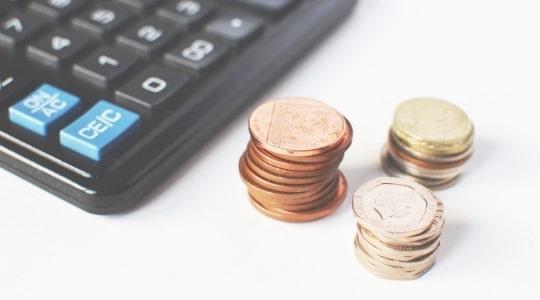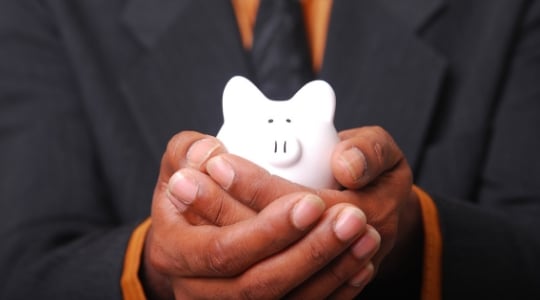How Much Emergency Fund To Have Minimum For Unsteady Rental Business?
It’s good to save for a car or a big down payment on your next investment property. But saving for something unpredictable is even better. Building an emergency fund for unpredictable times thus becomes important. Not only on a personal level, but an emergency fund is also far more important when you are running a business. And, the rental property business is no different. It is full of surprises. No matter how badly you want to stay away, unwanted expenses can come out of the blue and off-track you.
Building an emergency fund for your rental business covers you during unwanted financial situations in the business. Start contributing small, and you can gradually build your emergency fund.
Most surveys[1] suggest only 44% of Americans had enough money saved to cover an unexpected $1000 emergency. Clubbing it with an unsteady income, the odds get even lower. What about you? Are you prepared? Do you have enough emergency funds for your rental property? Do you know how much emergency funds you really need? And what are the exact tricks to build these reserves on an unsteady income? These are our take on this article today. Keep reading.
What is an Emergency Fund For A Rental Property Business?
The Property business owners are advised to hold up considerable amounts of cash reserves for unpredictable times. These cash reserves act as an emergency fund for your rental property business in the times of need.
A prolonged vacancy when you are not able to service your mortgage. Or an unexpected repair cost that unsettled your monthly expense budget. The emergency fund can give you a little cushion to keep your business running smoothly during such uncertain times.
An emergency fund thus is important for when you have a hard time servicing your business expenses. Not having funds to meet emergency, you don`t only lose business but even be forced to sell your rental property. Hold up enough emergency fund to save you from uncertain times.
How Much Reserves Should You Have in an Emergency Fund For Rental Property?

The amount of the minimum emergency fund varies for different individuals. For some, 3 month worth of expenses in an emergency fund is enough. And for others, even a 6-month emergency fund is not enough. So how to calculate your emergency fund for your rental business?
In a nutshell, your emergency should be minimal enough that it can give you protection and peace of mind.
- Do you have a stable business and steady cash flow? A 3-month worth of emergency funds for your rental property is enough for you.
- Your business experiences more than normal vacancies. You may need to hold more than 3-months worth of emergency funds for your rental property.
- Does your business experience lots of tenant turnover and hindered cash flow? You should consider at least a 6-month worth of emergency funds.
- Do you have a property with considerably old components and appliances? Consider holding up about a year’s worth of emergency funds with you.
Other Considerations When Calculating Emergency Fund
It is important that you also account for several other factors as well when calculating your emergency fund. Taking account of these will help you get a right estimate of how much emergency fund minimum do you need for your rental property business.
- Maintenance Cost of Rental Property
Your Emergency Fund should cover the unexpected repair and maintenance costs. Imagine the HVAC system that needs immediate replacement. Can your monthly cash flow cover this cost? An average replacement cost for an HVAC system can range anywhere between $5000-$10000[2]. This is where the emergency fund plays its role.
“On top of your monthly expenses, you should also account for maintenance costs in your emergency fund and calculate it accordingly.”
Generally, investors consider the average cost of maintaining the rental property as 1% annually of the total property value. Alternatively, you can also calculate the maintenance cost by estimating the average life of components and appliances.
- No. of Rental Properties
Your rental income is low when you have a few rental units. And the maintenance costs can eat up a significant percentage of your rental income. Compared to when you have more rental units, you have more income, and maintenance costs will not make that of a greater dent on your monthly cash flow.
So, when you have less no. of units or when you just started out. Have a considerably larger emergency fund as with limited cash flow, things can go south pretty fast. You may find it difficult to save for an emergency fund when you have less no. of units and limited cash flow. Start saving gradually and over time, you can build a considerable corpus.
- Type Of Rental Property
An apartment building experiences more wear and tear when compared to a single family home. Depending upon what type of rental property you own, your emergency fund varies. For instance, have a considerably larger emergency fund when you own a multi-apartment building with student rentals, compared to when you have a single family home in a good neighborhood.
- Inflation
Inflation can quickly eat up your emergency funds. The $5000 saved today will only be worth $4300 in 5 years at an inflation rate of 3%. You have to be smart about where to park your emergency funds to protect them from inflation. You should also consider increasing your emergency fund every year adjusting according to the inflation.
What Expenses Should Your Emergency Fund Cover?

It is important to understand what expenses you should use your emergency fund for. Using these funds for unintended expenses and purposes can cause you to suffer during the actual times of need. During times of need, you should use the emergency fund only to pay for
- Monthly Mortgage Payments
- Cost of Repairs and Replacement
- Damage due to Uninsured Perils
- Legal Liabilities
Read: Stop! Not all repairs are Landlord`s Responsibilities
You should not use your emergency funds for
- Paying Down Credit Card or any other Debt
- Contribution to 401K
- Down Payment Or Investments
- Travel and Holidays
Read: Why You Shouldn`t Pay off Your Property Mortgage Early?
How To Build An Emergency Fund on Unsteady Income?
It is quite challenging to contribute to the emergency fund on an unsteady income. But building an emergency fund becomes even more important when you have an unsteady income. Follow these steps to build a good enough emergency fund.
- Write down all your necessary expenses. The necessary expenses are those expenses that have to be made on a regular basis.
- Find an effective savings rate that you can save each month, say about 10% after deducting the necessary monthly expenses and investments.
- Gradually, you will save a considerable amount and you will have a good enough emergency fund. Also, it is very important where you keep your emergency fund savings.
“Feeling too much work, hire yourself a good property management company”
Read: How to Narrow Down To a Good Property Management Company For Your Rental Business?
Where To Keep Your Emergency Fund?

You have peace of mind when you have an emergency fund to cover you during uncertain times. But where you park them is equally important. You should keep your emergency funds where you can access them easily during the actual times of need. Keep them where they are also protected from inflation.
In a nutshell, park your emergency fund in a high-yielding instrument that can be liquidated easily. It can be a savings account or a liquid debt fund with no exit load. Remember not to use the emergency funds for unintended purposes. For this reason, always keep your emergency funds separate from your regular savings account or investment account.
Is Building Emergency Fund A Bad Investment Advice?
Building an emergency fund is surely bad investment advice because the opportunity cost is higher. The opportunity cost refers to the situation when you use the funds to invest and earn more rather than building an emergency fund.
To our dismay, risk should be given equal preference where the reward is concerned.
However, it is perfectly fine if you don’t save up for an emergency fund when you have access to or a source of liquid funds. It can be from your personal savings or when you have a good cash flow from your investments every month.
But if you don’t tick the above checkboxes or when you are just starting out in a rental business, it is highly recommended that you build up an emergency fund. Even before you save for making an investment, you should prioritize saving for building an emergency fund. The opportunity cost is surely higher. But you are running a risk of hindering your cash flow or maybe even worse, losing your asset during an emergency.
Considerations When You Skip Building Emergency Fund

We disclaim that you skip building an emergency fund. And if you are skipping, we assume you have these bare minimum protection already in place for your rental business. The more cover you have, the better protected you are during liabilities arising from uncertain events and possibilities.
- Landlord Insurance:
Every rental property owner must consider buying a landlord insurance policy. This policy can cover you from lots of financial liabilities provided you have included the right covers for you.
Read: The Must Have Covers For Your Landlord Insurance Policy
- Liability Protection
Liability protection is important for any business and in the rental business, you are exposed to a lot of liabilities. So having liability protection is important and especially in absence of an emergency fund, you can`t risk occurring liabilities. You can consider either an LLC incorporation or taking an Umbrella Policy, whatever suits your case best.
Read: LLC Incorporation or Umbrella Policy- What is Best Form of Liability Protection for you?
Emergency Fund Alternatives For Your Rental Property
Yes, there are alternatives to building an emergency fund. But nothing is compared to the haven an emergency fund can offer you.
- Credit Card
Credit Card is the easiest and quickest way to access funds in an emergency, but it is costliest at the same time. The interest rates on credit cards are in double digits. Also, your credit cards have a certain limit and if your emergency expense requires a higher amount, you may need to look for an alternative.
- HELOC
A Home Equity Line of Credit is a good way to get a hold of funds during an emergency. Interest rates are also lower when compared to credit cards. The only thing with HELOC is that you have some equity in your property and have a good credit score. Get a line of credit approved and borrow only that many funds that are needed during the time of emergency.
Like this article? Then, you may subscribe to our newsletter where we come up with information to help you with your rental property business and run it even smoother. Have a question to ask, feel free to comment down below or join our community at Facebook.


